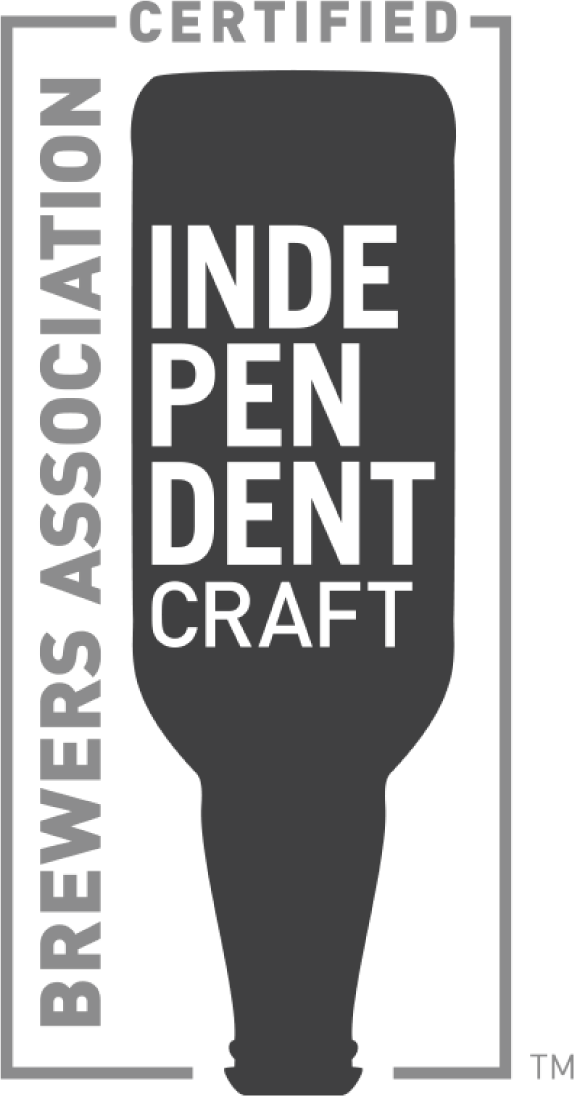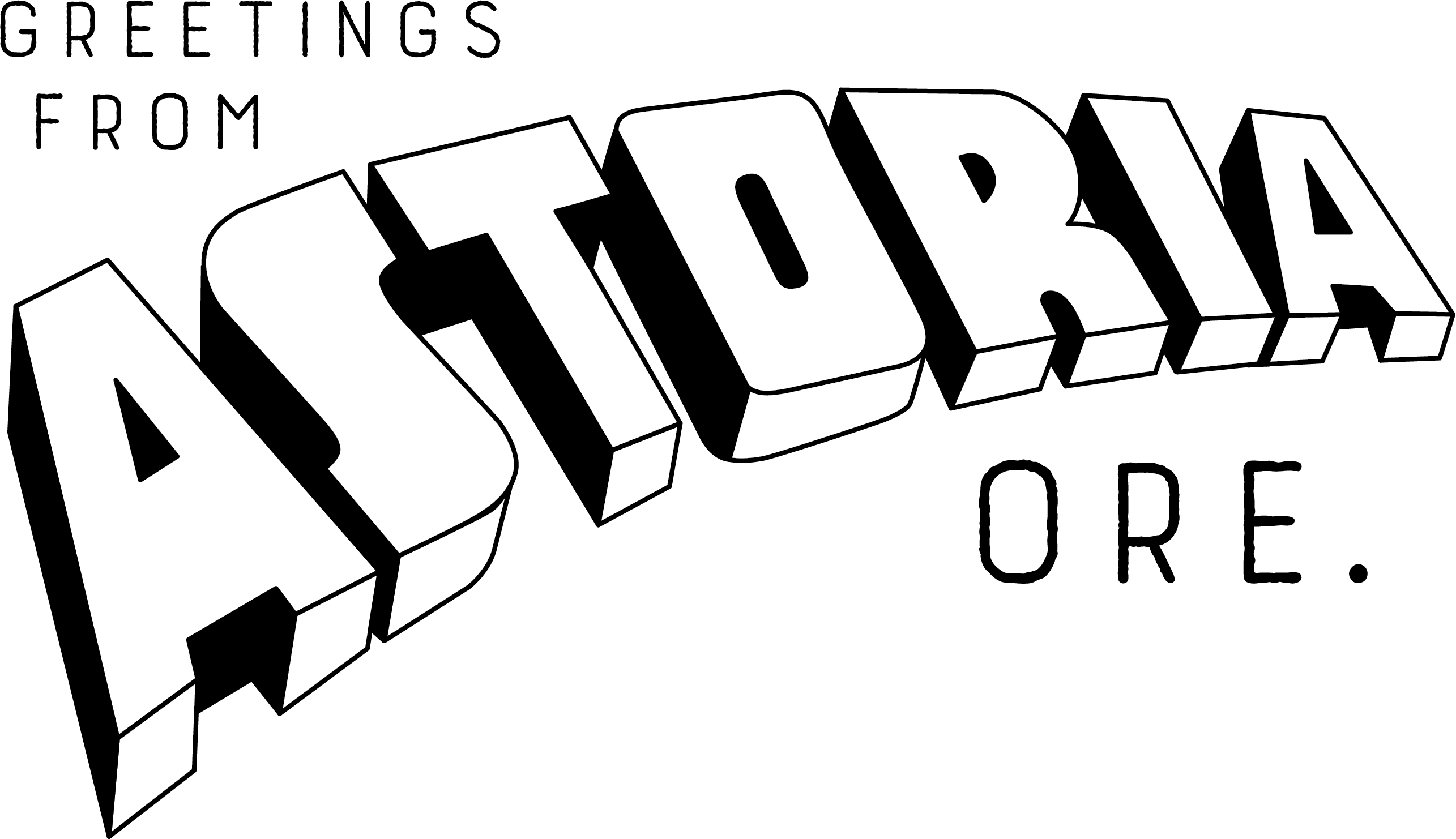
Unique, Single-Origin Hops + exciting, Single-Origin Coffees = Java the Hop
Fort George & Coava Coffee
If you’ve only seen one movie in your entire life – chances are it was a Star Wars movie. And if it wasn’t, rest assured that it had some similar plot points. The timeless appeal of highly-accessible pop science fiction, hung on the barely-obscured skeleton of Western Culture’s most pervasive and foundational hero cycle equals a film franchise universally tolerated and frequently loved. ‘The Hero Cycle and Space’ is just one famous pairings that we celebrate in the Pub on Star Wars Day (May Fourth).
And the other unparalleled combination – The Hop and the Bean – results in our objectively best Spring Seasonal Coffee IPA: Java the Hop.
Together with our friends at Coava Coffee in Portland we hand selected two single origin, masterfully roasted coffees to pair with two masterfully grown hop varieties. The combinations are legendary, the flavors are hoppy, other-worldly, fruity, bitter, roasty, galactic, floral, and crisp.
Version ONE – Motueka Hops + Coava Benjamin Miranda Coffee (Honduras)
Version TWO – Comet Hops + Coava Rayos del Sol Coffee (Peru)
Each 4-pack of this super-limited beer contains two cans of each variety.
Available Thursday, May 4, 2023 in the Pub and online.
*Read on for an in-depth look at the origin of two of Coava’s unique, handcrafted beans and the process of crafting the perfect combination of Hop and Bean.*
 Version ONE – Motueka Hops + Coava Benjamin Miranda Coffee (Honduras): Sweet citrus, floral honeysuckle, resinous with honey notes. Slightly hazy with a rich, soft mouthfeel.
Version ONE – Motueka Hops + Coava Benjamin Miranda Coffee (Honduras): Sweet citrus, floral honeysuckle, resinous with honey notes. Slightly hazy with a rich, soft mouthfeel.
Coava has been buying beans from Benjamin Miranda, a coffee producer in Santa Barbara, Honduras since 2009. The extremely high elevation of his coffee farm in the Monticellos Mountains produces beans of exceptional quality.
From our friends at Coava:
A Very Brief History of coffee in Honduras –
COAVA: It’s believed that coffee was first introduced to Honduras by European traders sometime in the late 18th century. Records show that by the mid-19th century, farms had been established and coffee was grown on a small scale.
Honduras has many of the climatic and geographic conditions necessary to produce high quality coffee. However, because it lacked the infrastructure benefiting other coffee growing countries in the region, Honduras historically struggled to produce specialty coffee on par with its neighbors. For years, this meant the majority of the country’s coffee was relegated to commercial grade blending.
Due to disorganized trade infrastructure and high export taxes, it was common practice to smuggle Honduran coffee into neighboring Guatemala and El Salvador, where it fetched higher prices. Eventually, the government started allocating more of this tax revenue back to the producers in the form of technical assistance, leading to improvements in both production and quality. As the value of Honduran coffee increased, producers found more profit in exporting coffee legally rather than smuggling it across the border.
In recent years, Honduras has emerged as one of world’s the most important coffee origins. In 2011, Honduras surpassed Guatemala to become the largest coffee producer in Central America, and is now 7th largest in the world. The coffee world has taken notice of the excellent quality found in Honduras as well.
Honduras offers a huge spectrum of flavor profiles. The cup characteristics can run the gamut from super sweet with chocolaty flavor and creamy body that work great in espresso, to tropical and citrus fruit flavors with vibrant acidity and medium body.
Benjamin Miranda is a coffee we recommend to people looking for an approachable but complex cup. It features a balanced profile that showcases broad flavors ranging from deep sweet caramel, to juicy plum, to delicate honeysuckle. This is a staff and customer favorite for the short time it is on the menu every year due to the layered and balanced complexity this coffee always delivers.
FORT GEORGE: Motueka is a more recent hop invention created in New Zealand – a cross between the old world noble hop Saaz (Czech landrace hop responsible for the unique flavor profile of most Bohemian lagers and pilsners) and an unnamed New Zealand variety. We selected the Motueka in Version One of 2023’s Java the Hop for the tart, refreshing tropical lime flavors that it brings to the final beer. The bright, snappy citrus character and immense versatility of Motueka is well-suited to single-hop IPAs since it can be used to great effect at any point in the brewing process but also shines in some of our lagers, including Beach Eagle (a summer seasonal Mexican-style lager released May 5th). We pitched 60 pounds of Coava’s Benjamin Miranda beans and over 70 pounds of New Zealand Motueka hops into this one of a kind Coffee IPA. The rich, complex caramel notes of Coava’s Benjamin Miranda beans are a bold, tempering match for Motueka’s bright citrus – the deep, rich plum and honey notes in the cup translate to a pint with the aroma of a decadent berry tart glazed in refreshing citrus.
 Version TWO – Comet Hops + Coava Rayos del Sol Coffee (Peru): Stone fruit, passionfruit, hibiscus notes and toffee with a final hint of grain.
Version TWO – Comet Hops + Coava Rayos del Sol Coffee (Peru): Stone fruit, passionfruit, hibiscus notes and toffee with a final hint of grain.
In the city of Chirinos, in Cajamarca, Northern Peru, there is a co-op of Coffee growers who work together sharing resources, knowledge and advice. In 2019, Coava Coffee employees traveled to Chirinos and were deeply impressed with the coffee coming out of La Prosperidad de Chirinos. Three lots in particular stood out: Mariano Peña Huertas, Juana Maria Larreategui, and Ignacio Roman Flores. The three producers call the resulting blend of their harvests Rayos del Sol (sunlight).
From our friends at Coava – A Very Brief History of Coffee in Peru –
COAVA: Not much has been documented about the arrival of coffee in Peru, but we do know that it was introduced into the country in the late 1700’s. Most of the coffee grown in Peru is cultivated on small farms found high in the Andes Mountains that are less than two or three hectares in size and sit at about 1,000-1,800 meters above sea level. Most of the farmers are indigenous and speak Spanish as a second language. Their coffee is picked by hand and generally processed on the farm using small-scale wet mills. The growers almost always travel long distances on foot to sell their coffee to intermediaries in commercial centers, usually at a relatively low price. Between the local town and the exporter’s mill the product may change hands several times, and runs a risk of being mixed with other coffees which adds to the farmer’s many challenges.
Additional challenges to the coffee industry in Peru are poor roads, the isolated locations of many farms and problems associated with wet processing and drying. However, in recent years the Agricultural Ministry in Peru has introduced more modern farming methods and encouraged the development of farmer organizations. This more organized and centralized system with an emphasis on certified coffees has resulted in higher quality coffee, higher demand for Peruvian coffee in international markets and competitive pricing for the product.
Peru is the 9th largest producer of coffee in the world accounting for 2% of global coffee production. It is also one of the leading producers of organic and Fair Trade certified coffees. The exceptional altitude of the Andes Mountains and ample shade of its forests provide an ideal environment for the cultivation of Arabica coffee.
Peru’s grading system uses a unique term called “Machine Cleaned Mejorado” (MCM) to designate a high degree of mechanical sorting and preparation prior to export. The cup profile of a standard specialty Peru Gr. 1 MCM tends towards nutty, chocolatey flavors, usually with a crisp acidity, light-medium body and a brisk finish. Traceable coffees from Peru can exhibit a full range of complexity from tropical fruit to lush red wine and sparkling citrus.
Rayos del Sol is a coffee we recommend to those looking for a coffee that is delicate and complex and represents a unique region. It showcases an elegant range of bright, sweet, and tropical flavors.
FORT GEORGE: Comet was developed in the 1960s by the USDA as a bittering hop and was designed specifically to thrive in the Yakima Valley. Comet is zesty but also herbal with what’s been called a uniquely American flair. Its grassy, resinous, forest-floor character made it initially less popular but versatility and its unique aroma have since brought Comet back into the craft brewer’s arsenal. You’ll find Comet Hops everywhere from American Lagers to IPAs, and paired with Coava’s Rayos del Sol in Version Two of 2023’s Java the Hop. Rayos del Sol’s sweet, tropical flavors are the perfect complement to Comet’s crisp zest while a floral, hibiscus aroma in the cup melds perfectly with the earthier elements of the hop, producing a delicate aroma: sun-warmed prairie grass with a snap of fresh, sweet toffee. Over 70 pounds of Yakima Valley Comet hops and 60 pounds of Coava’s Rayos del Sol beans were added to Version Two.
On May Fourth, 2022, you’ll find Java the Hop in a mixed 4-pack (2 x version one, 2x version two) wherever good beer is sold. But only for a limited time. This special collaboration with Coava Coffee is another super small batch can project from Fort George’s Little Miss Texas brewery on Duane Street.




